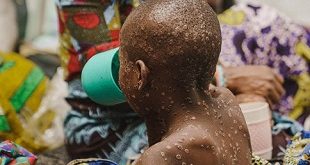
Kampala, Uganda | THE INDEPENDENT | Scientists at Makerere University Lung institute have started evaluating herbal remedies for treating asthma following complaints that people living with the condition are often lured into using herbs whose safety is unknown.
Dr Bruce Kirenga, the Institute’s Executive Director has said they have created a platform to allow laypeople who have herbal remedies for respiratory diseases like asthma to bring in their products for assessment.
He says already, one herbalist who claims to have cured people using a concoction has been registered and studies have started with evaluating people who have used the herb to see whether they really had asthma and are now disease free.
Last week, as researchers at the institute released findings of a study in which they were among others establishing how prevalent asthma is among adolescents, there were testimonies among parents that they have used herbs and their children are now experiencing fewer asthmatic attacks.
But, Dr Rebecca Nantanda, a pediatric lung expert who did the study warned that it’s risky to use medicines whose effect on the patient is unknown. She, however, acknowledged that even in their study, people testified using crude remedies such as giving asthmatic children porridge made from adulterated flour that a chameleon has played in.
Dr Frank Mugabe, the Principal Medical Officer in charge of Non-Communicable Diseases in the Ministry of Health says that there is a herbal medicine that workers are still hesitant to recommend because it hasn’t gone through the proper channels prescribed by the World Health Organization.
Meanwhile, Nantanda says currently, people are resorting to herbal options partly because appropriate asthma treatments are hard to access. She notes that while salbutamol tablets are no longer recommended for relieving asthma patients, they are still widely used because inhaled cortical steroids are expensive and hard to access even in the private sector.
However, there has been an increase in people newly being confirmed for asthma which the Ministry of Health attributes to among others the increase in population in urban areas. Figures show Kampala has the highest numbers followed by West Nile and Western Uganda. The lowest asthma rates are recorded in Karamoja and the Lango region.
*****
URN
 The Independent Uganda: You get the Truth we Pay the Price
The Independent Uganda: You get the Truth we Pay the Price



